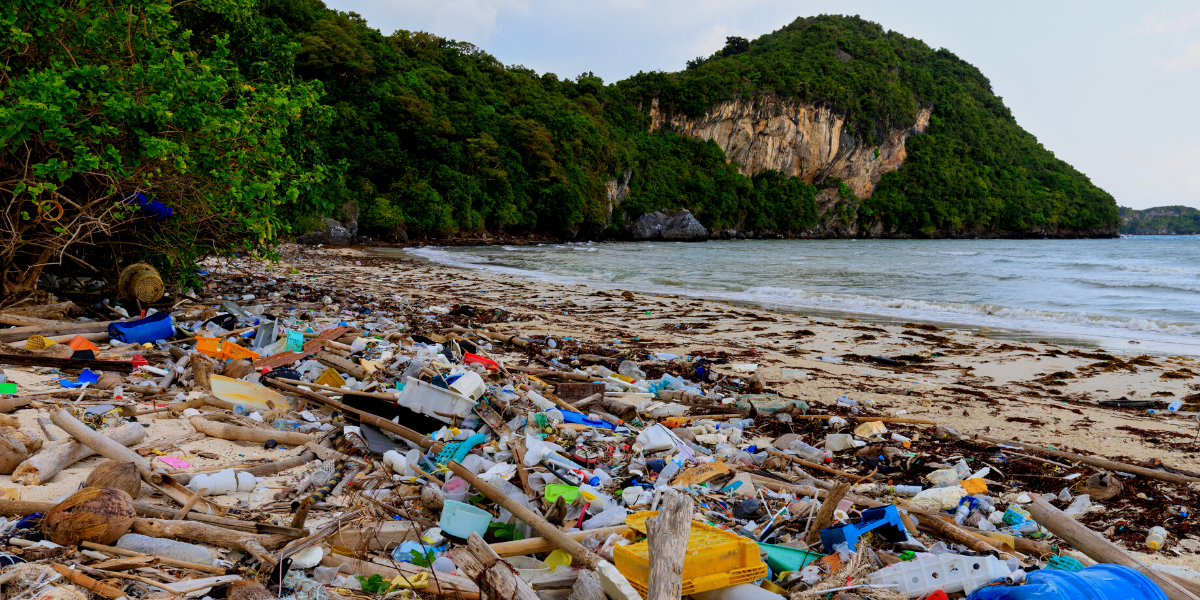
4 Impacts of Mass Tourism on The Environment
Mass tourism is a lucrative industry that most of us reading this have taken part in. It’s also an environmental disaster.
It’s one of the biggest industries in the world, generating more than 2.1 trillion US dollars each year in revenue. Tourism has been hailed as one of the best ways to promote economic development around the world. It creates jobs for local people and helps boost local economies. But with increased global travel comes increased tourism impacts— both environmental and social. Here are four impacts of mass tourism you should keep in mind when planning your next vacation:
- It contributes to global greenhouse gas emissions.
This one might be obvious, but it bears repeating. Any type of transportation you take will lead to greenhouse gas emissions, which contribute to the warming of our atmosphere. Global air travel is one of the largest contributors to greenhouse gas emissions, and airlines have resisted carbon taxation or any sort of compensation for their contribution to global warming.
Some airlines have added the option to offset emissions related to the fuel used by your trip at checkout for a small fee. Other environmentalists have encouraged the use of public transit while travelling to cut back on your individual emissions. While walking more and driving less is certainly a good start, it’s not going to solve the emissions problem created by mass tourism.
As more people travel more frequently after the pandemic restrictions are completely lifted, we’ll need to take a look at how to optimize our trips for the least amount of emissions. Airlines and the tourism industry also have an opportunity to examine how they can find ways to reduce their environmental impact, particularly when it comes to the emissions created by burning jet fuel.
To learn more:
- It harms communities and can harm or displace local people.
Humans and the environment are inextricably linked- and this fact is extremely clear in the case of mass tourism.
Tourism can cause the price of living for local people to skyrocket, forcing them out of areas they have called their home for generations. When tons of tourists visit an area, they put of pressure on local infrastructure not necessarily designed for them. The roadways, the plumbing, the water availability- all of this is put to the test during tourist season when local populations can increase by as much as five times. This can even cause problems with waste management and sanitation. And this doesn’t even begin to touch on the economic impacts that unsustainable tourism can have on delicate or impoverished economies. In some environmentally sensitive areas, local people have begged tourists to stop coming. While ending tourism in these locations is politically contentious, it’s worth reconsidering a trip to a location where local people are suffering due to mass tourism.
To learn more:
- It creates unnecessary waste.

The amount of waste that is produced by tourists is staggering. In fact, it’s estimated by The United Nations Environment Programme (UNEP) that 14% of all solid waste is produced by tourists every year. So much of what we use when we travel is disposable! And we’re throwing it away in places that we don’t live in or truly understand.
The reliance of the tourism industry on single-use plastics and disposable items means that mass tourism creates a massive amount of waste. Local authorities often can’t handle these giant waste streams, and landfills can become overrun. It’s not pretty! The question remains as to how tourists can better support local waste management efforts in the places they are visiting.
To learn more: Waste Crisis! An Overview Into Bali’s Nightmare
- It can damage natural landscapes and fragile ecosystems.
When people travel to a new area, they might think they know how to interact with the environment and its residents, but they often don’t. Tourists often show an insensitivity to the local culture and disregard for the laws and norms of the places they visit. As a result, they can cause a lot of damage to the fragile ecosystems of popular vacation destinations. While some may have great intentions but aren’t aware of how to protect ecosystems such as coral reefs.
To learn more: Environmentally Friendly Diving & Snorkelling - What Is Green Fins?
Not to mention that tourism has been linked with increased rates of deforestation and habitat loss because of its demand for land use for hotels and resorts, as well as other infrastructure like roads or parking lots needed for tourists.
Tourism has traditionally been about making money that typically ends up in the hands of non-local developers, politicians, and travel-related corporations like airlines. We have to start working out ways to encourage high-quality, sustainable tourism through governmental policy and private incentives. To learn more about this topic, follow along on Ocean Mimic’s social channels throughout the month of February as we explore mass tourism.
Link nội dung: https://truyenhay.edu.vn/mass-tourism-has-been-one-of-the-causes-of-the-environmental-problems-a68260.html